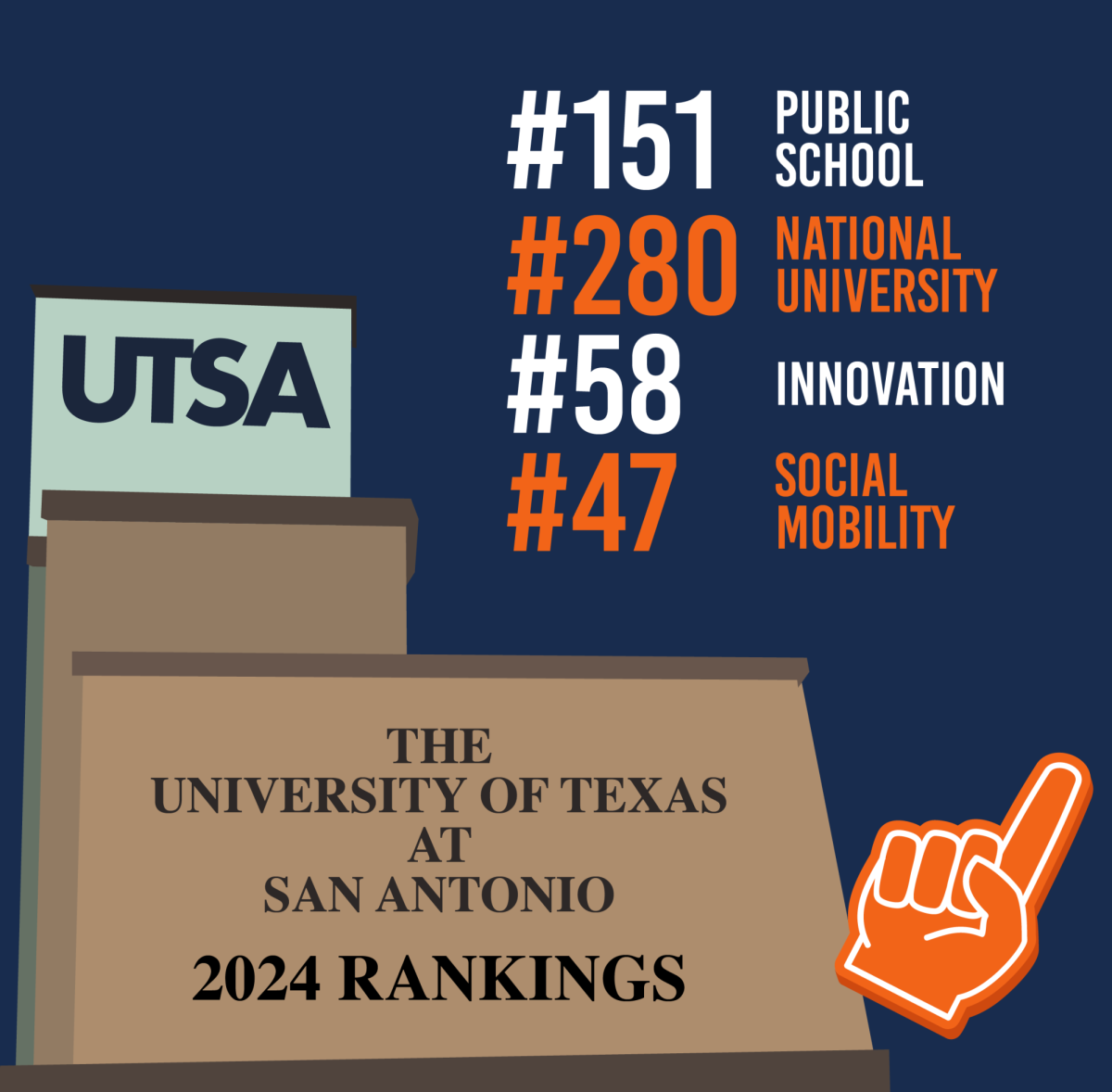UTSA Libraries has partnered with OpenStax, a non-profit Rice University initiative funded in part by the Bill & Melinda Gates Foundation that provides free textbooks to students.
“Our mission is to increase access to education. We believe in academic freedom, so we ask faculty to review our textbooks and decide for themselves if they will be a good fit,” says Dani Nicholson, the associate director of marketing and communications at Openstax.
Aligned with the same goals of cutting student expenses and increasing access, UTSA Libraries has partnered with OpenStax.
According to Nicholson “Once an instructor adopts an OpenStax textbook, students will potentially save hundreds of dollars and possibly perform better in their courses because they have access to materials on day one of class.”
OpenStax is a non-profit organization funded in part by the Bill and Melinda Gates Foundation. The group has developed over 20 free, peer-reviewed textbooks for introductory college courses and is in the process of developing more.
These textbooks are available to instructors at any institution and are completely free; however, DeeAnn Green, the UTSA Social Sciences Librarian, says that UTSA Libraries’ collaboration with OpenStax will benefit UTSA by giving the university access to OpenStax’s experience and proficiency in open-educational resources as well as OpenStax’s free consultation, workshops and grant programs. This collaboration, according to Green, will help UTSA become more proficient in open-educational resources, which will lead to more accessible education for all students.
“UTSA libraries’ partnership with OpenStax will lay the foundation for quicker expansion and growth in open textbook adoption at UTSA,” Green said. “The partnership’s main goals are to ease the financial burden from purchasing traditional textbooks and ultimately help with student retention and success.”
“OpenStax has saved students $66 million since 2012 and will save students $39 million this academic year alone,” says Nicholson. In terms of the non-profit’s reach, she explained that at least one OpenStax textbook is in use at one in 5 colleges and universities in the United States.
Alluding to beginning of semester challenges, Nicholson went on to say that OpenStax benefits students by providing access to course materials on the first day of class while saving hundreds of dollars in course-material fees.
Junior Richard Hillman, a criminal justice major and sociology minor, said he loved using an OpenStax textbook in one of his classes last semester. Hillman, a veteran, said that he had to wait on funding and fell behind in his classes because he could not buy textbooks. He dropped one course altogether because the materials were over $300. The only class he was able to keep up with was the sociology class that used an OpenStax text because it was free and available the first day of class.
“I love the fact that the [OpenStax] books are all digitized because you can copy and paste and make your own reviews for exams. Openstax is much better than traditional textbooks,” Hillman said.
UTSA Libraries sponsored a workshop with OpenStax on Feb 29 during which 10 faculty members applied to use OpenStax textbooks in their classrooms. According to Green, these faculty members will adopt low-cost or free materials in their classrooms.. If their applications are approved, instructors will begin using OpenStax materials Fall 2016.






